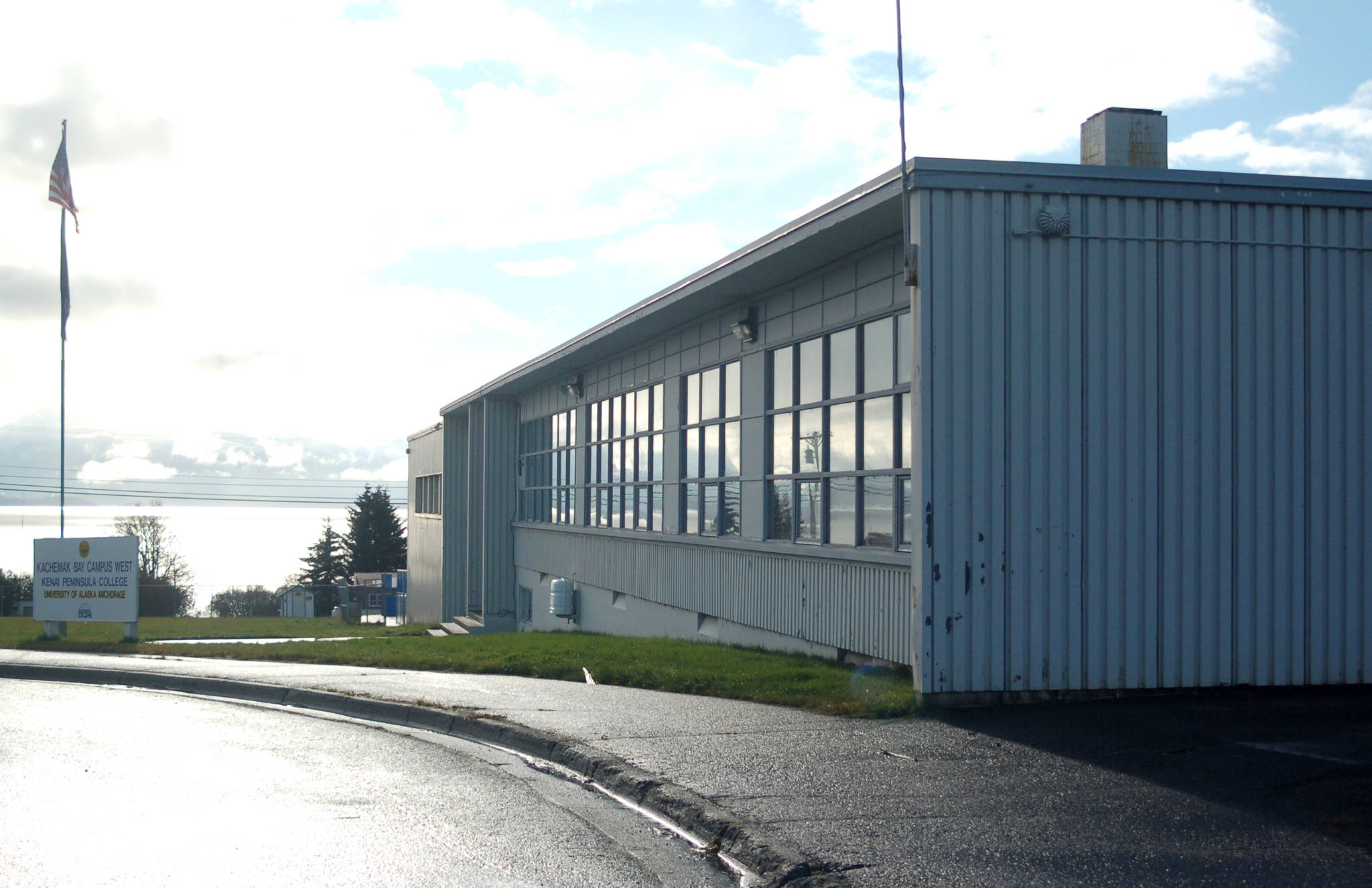The fate of the Homer Education and Recreation Complex, the HERC, is once again on the lips of elected officials and concerned citizens.
Members of the Parks, Art, Recreation and Culture Advisory Committee participated in a worksession to go over options for the HERC with the Homer City Council before its Monday meeting. There the respective pros and cons of selling, updating or converting the building were hashed out. The city took comments on four “visions,” or options for the facility: selling it, turning it into a hotel/convention center, combining it with a future police station and updating the building as a recreation-only facility.
The city took the building off the Kenai Peninsula Borough’s hands for $1 in 2000, with the stipulation at the time “that the site shall be owned in perpetuity by the city of Homer or its successor and be managed for the use and benefit of the general public.” Since then, the HERC has been the subject of much debate, with community members arguing the best use for the facility and the merits of keeping it compared to selling it.
According to a resolution adopted in 2013, the “city council has concluded it is in the best interest of the community to demolish the buildings and use the site for the proposed new public safety building.” The HERC has been included in discussions of the city’s planned new police station as a possible site, where the station would share the space with a recreation facility and part of the building be used for evidence storage and a possible shooting range.
At the Monday worksession, a few members of the advisory commission voiced their opposition to letting the HERC out of the city’s control by selling. Commission member Deb Lowney mentioned the fact that the building was given to the city with the understanding that it would be used for education and recreation, and said that if it was sold, whatever was done with the site should give back to the community in those areas.
“To think that it would be moved out of the city hands is almost hard for me to fathom,” she said.
“If you’re going to sell it, (you’ll) have to convince the citizens of Homer that we need to sell that piece of property, and that it does not have any value outside of taxable value and financial value,” said commission member Matt Steffy. ” And that’s going to be a hard sell, and that’s going to require a … campaign that the city’s going to have to invest some efforts into, and some education and outreach if that’s the decision the city wants to go with.”
Not all were against the idea of selling, though.
“First of all, we would get it (the HERC) back on the tax rolls and start to get property taxes back there,” said council member Shelly Erickson. “I also think that if we sold it … we would also get sales tax from the different activities (held there).”
While discussing the possibility of the HERC becoming a hotel/convention center, council member Rachel Lord mentioned that, based on a 2005 feasibility study, the possibility of a municipally owned standalone convention center without a hotel did not have a positive financial outlook, though the idea wasn’t ruled out completely. A combination with a hotel could work, though council members commented that such an option would hinge on the site being sold.
When it came to the option of having a shared facility that is part recreation and part police station, both Steffy and council member Heath Smith urged caution. Such a plan would have to be OK’d by Police Chief Mark Robl, Smith said, who has expressed reservations about having a combined facility also used by residents. Steffy emphasized the need to clearly define what a “shared” building would mean in this case.
Lowney expressed concern that, as the new police station needs room to expand over the years in the future, that the recreation activities would eventually get pushed out of the building.
The option of keeping the HERC as a purely recreational multi-use facility brought up comments that it would take significant funding to upgrade the building to the point that it would be possible. Lord commented that she’d like to see a financial picture of how such a facility might operate, including things like an activity fee schedule.
Next, the council discussed what information is still needed about each option in order for council members to pursue them. Member Rachel Lord suggested pulling the old 2005 feasibility study for reference. Erickson, citing a probable change in area demographics and state tourism since then, suggested searching for studies or surveys with more updated data in those areas.
Council member Caroline Venuti mentioned that an option for maintaining the HERC if it were to stay with the city was creating a recreation service area, like the one in Nikiski, so that property taxes within the service area would be used to fund it. That service area could include neighborhoods on the lower peninsula outside city limits.
“I’ve been kind of advocating for a while for the recreational (service area) for everyone that lives outside the city of Homer,” Erickson said. “Because the people that pay the taxes for the city of Homer are the ones that are having to foot the bill basically.”
If the city were to sell, Lord said public input on selling a city asset would be essential.
“For years we’ve been talking about the HERC,” Erickson said. “We’ve been talking about how much it costs to maintain, we’ve been talking about it’s always about the dollars … that and asbestos. And I think there’s a point that we really need to be able to take a hard look at this as, what do we want … and what are we willing to pay for?”
Reach Megan Pacer at megan.pacer@homernews.com.


